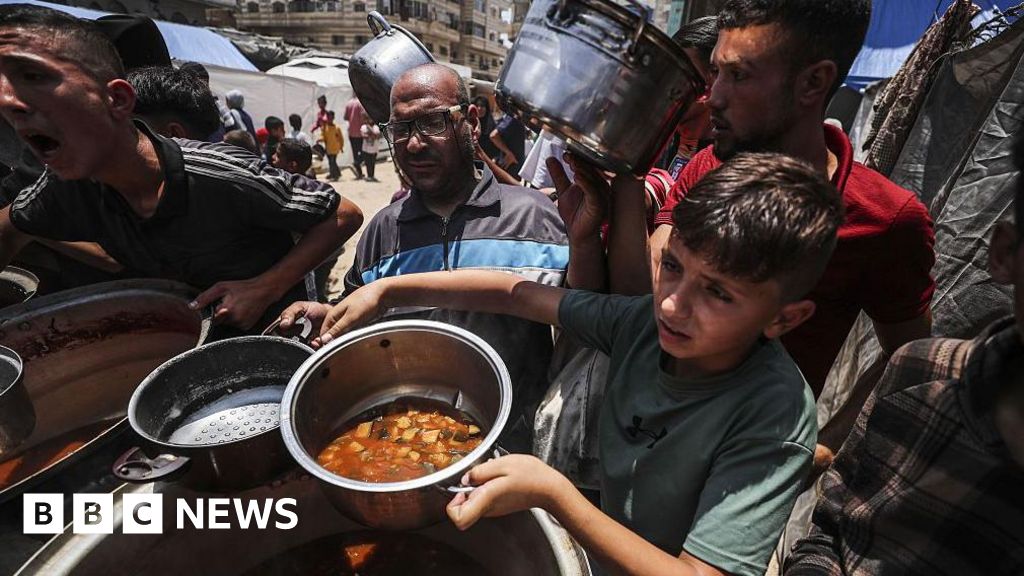ARTICLE AD BOX
By Andrew Clarence in Delhi & Simon Fraser in London
BBC News
Image source, Reuters
Image caption,Malik was escorted by Indian police officers into court to hear the sentence being announced
A court in India has sentenced senior Kashmiri separatist leader Yasin Malik to life imprisonment after convicting him of funding terrorism.
He was found guilty of participating in and funding terrorist acts and involvement in criminal conspiracy.
Malik told the court he gave up arms in the 1990s. He was convicted last week.
Tens of thousands of people have been killed in Muslim-majority Kashmir since an armed revolt against rule by India, which is mostly Hindu, erupted in 1989.
The court in the capital Delhi gave Malik, 56, two life sentences and five 10-year jail terms, all to be served concurrently, NDTV reported.
"Verdict in minutes by Indian kangaroo courts," Malik's wife Mushaal Hussein wrote on Twitter, saying he would never surrender.
Shops in some areas of Srinagar, the main city in Indian-administered Kashmir, were shut and police fired tear gas to disperse stone-throwing protesters outside Malik's residence.
India's National Investigating Agency (NIA), which deals with anti-terror crimes, had demanded the death penalty for Malik, the leader of the pro-independence Jammu and Kashmiri Liberation Front (JKLF). The defence had asked for life imprisonment.
Ahead of sentencing, he was escorted into the court surrounded by security forces.
Malik was arrested shortly after the JKLF was banned in 2019.
He did not contest the charges brought against him under the stringent Unlawful Activities Prevention Act (UAPA), as well as sedition and criminal conspiracy charges.
But a statement released by the JKLF after he was convicted last week called the charges "fabricated and politically motivated".
"If seeking aazadi [freedom] is a crime, then I am ready to accept this crime and its consequences," it quoted Malik telling the judge.
He also told the court that after giving up weapons in 1994, he had "followed the principles of Mahatma Gandhi. Since then, I have been following non-violent politics in Kashmir."
He challenged the Indian intelligence agencies to prove that he had been involved in any terror activity since then. The acts for which he was convicted took place in 2010 and 2016, prosecutors alleged.
The JKLF - which has sought independence for Kashmir from both India and neighbouring Muslim-majority Pakistan - was formed in 1977 with Amanullah Khan as its head.
He and Malik organised resistance to Indian rule with help from the then Pakistani military regime of General Zia-ul Haq.
Image source, EPA
Image caption,Indian troops patrol empty streets in Srinagar, where many shops shut ahead of sentencing
Kashmir has been a flashpoint between the nuclear-armed neighbours for decades. Both India and Pakistan claim the entire valley, but control only parts of it.
India accuses Pakistan of backing militant groups based in Kashmir, which Pakistan denies.
It was a bomb attack by the JKLF in Srinagar on 31 July 1988 which in effect marked the start of the separatist insurgency against Indian rule in the region that has raged for more than three decades.
However, once the insurgency was successfully launched, correspondents say Pakistan withdrew support from the JKLF and instead backed groups that wanted Kashmir's accession to Pakistan.
As a result, the JKLF found itself sandwiched between Indian security forces and pro-Pakistan militants. By 1990, much of its cadres had either been dispersed, destroyed or absorbed into other groups. Its leadership also split into factions, and some of them renounced militancy.
In August 2019, India's BJP-led government stripped the state of Jammu and Kashmir of the limited autonomy it had had for seven decades, characterising it as the correction of a "historical blunder".

 3 years ago
54
3 years ago
54








 English (US) ·
English (US) ·